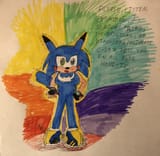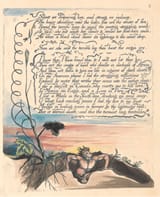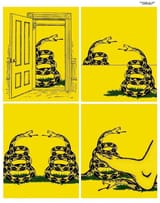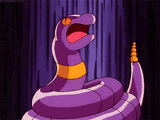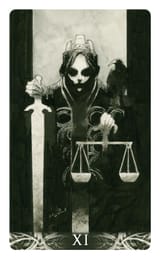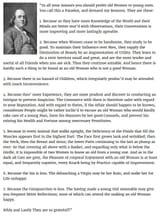William Blake and Chris Chan
For the past several days, I've been obsessed with William Blake, one of the greatest poets and mystics of the early modern era. I've been studying his theological writings and prophecies, and I couldn't help but notice some striking similarities between him and Chris Chan, another fascination of mine. I think that both Blake and Chris found a tremendous mysticism, namely the empirical reality of the imagination and its capability to perceive the supernatural and theological.
William Blake faced spiritual visions throughout his life, starting at age 4 and continuing through the rest of his career. He saw God, angels, and Satan at various points, and these experiences shaped his mystical poetry and prose. Drawing from his two main works of systematic theology, "All Religions are One" and "There is No Natural Religion", I believe I have summed up his theological approach as such: Knowledge is empirical, yet our natural senses only reveal finite phenomena, hence mankind possesses what Blake calls Poetic Genius (also known as imagination), which allows mankind to perceive the infinite in all things, and thus perceive God. Some atheists and crypto-atheists (like the “Death of God” theologians) have taken this teaching to mean that all spirituality is imaginary and thus lacks ontological reality, but they have fundamentally misunderstood Blake's argument. Blake was no atheist: he instead believed that the imagination (or as he dubbed it, Poetic Genius) allowed mankind to perceive an infinite scope of entities beyond the limits of our ordinary perception. This theology compelled him to outline an entire body of mythology and write countless spiritual books and prophecies, such as the Book of Thel and America: A Prophecy (this prophecy seemed to eerily predict the course of history after the American Revolution).
William Blake faced spiritual visions throughout his life, starting at age 4 and continuing through the rest of his career. He saw God, angels, and Satan at various points, and these experiences shaped his mystical poetry and prose. Drawing from his two main works of systematic theology, "All Religions are One" and "There is No Natural Religion", I believe I have summed up his theological approach as such: Knowledge is empirical, yet our natural senses only reveal finite phenomena, hence mankind possesses what Blake calls Poetic Genius (also known as imagination), which allows mankind to perceive the infinite in all things, and thus perceive God. Some atheists and crypto-atheists (like the “Death of God” theologians) have taken this teaching to mean that all spirituality is imaginary and thus lacks ontological reality, but they have fundamentally misunderstood Blake's argument. Blake was no atheist: he instead believed that the imagination (or as he dubbed it, Poetic Genius) allowed mankind to perceive an infinite scope of entities beyond the limits of our ordinary perception. This theology compelled him to outline an entire body of mythology and write countless spiritual books and prophecies, such as the Book of Thel and America: A Prophecy (this prophecy seemed to eerily predict the course of history after the American Revolution).

